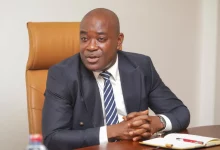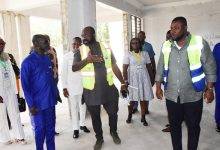The United Nations (UN) adopted the Sustainable Development Goals (SDGs), in September 2015, as the global blueprint to sustain and improve upon the erstwhile Millennium Development Goals, with a clarion call on governments to ensure inclusive socio-economic growth.
The emphasis of the SDGs, which has 17 goals, and more than 100 set targets, is to ensure economic growth, social inclusiveness, improve wellbeing of the people, and protect the planet for future generations through climate change mitigation.
What makes the SDGs dear to the hearts of Ghanaians is the fact that President Nana Addo Dankwa Akufo-Addo is the co-chair of panel of eminent personalities, set up by the UN Secretary General, to heighten global awareness and mobilise support, especially from the private sector, for the attainment of the SDGs goals.
No wonder, the global community looks up to the country as a shining example, having done well to achieve the Millennium Development Goal one of reducing hunger and poverty, much earlier than the targeted year of 2015.
Three years into the implementation of the SDGs, Ghana’s delegation is presenting a National Voluntary Report (NVR) at the UN High level Political Forum (HLPF), which is under the auspices of the Economic and Social Council, on the theme: ‘Empowering people and ensuring inclusiveness and equality’, in New York, USA.
The establishment of the Forum on Sustainable Development was mandated in 2012 by the outcome document of the UN Conference on Sustainable Development (Rio+20). “The Future We Want”.
The HLPF, which held its first meeting on September 24, 2013, is the main UN platform on sustainable development, which has a central role in the follow-up and review of the SDGs at the global level.
Ghana’s representatives have already held a side event with civil society organisations (CSOs) at this year’s event, with a call by Professor George Gyan-Baffour, Minister of Planning, for effective partnership in the implementation of plans and programmes to address the challenges of humanity.
He explained that “at the core of partnership for development is a win-win relationship where partners can pull their resources and competencies together to address economic, social and environmental aims more effectively.”
Prof. Gyan-Baffour, who is leading the delegation to the forum, said the government is committed to supporting the multi-stakeholders approach, with state and non-state actors working together at all levels to attain results for a better and prosperous society.
We have noted the contributions of CSOs to socio-economic development, especially in addressing challenges facing the implementation of the SDGs.
Ghanaian Times would also not shirk its responsibility of holding duty bearers accountable to make the implementation of the SDGs a success.
We have also noted with keen interest the Ghana civil society organisation platform on the SDGs ‘shadow’ NVR report, launched in Accra, in which it described Ghana’s performance so far, as being a mixture of successes and challenges.
The country, according to the report, has performed well in terms of education, especially with the introduction of the Free Senor High School policy that has enhanced access to education, but quality remains a challenge.
It also indicates that although Ghana has achieved appreciable economic growth, it had not translated into decent work for decent pay.
Additionally, there are challenges in the health sector in terms of universal health coverage, which requires urgent attention to improve the health status of the people, especially the underserved and vulnerable.
But, with positive moves to implement SDGs, there is hope that Ghana can address its socio-economic challenges, and protect the environment for future generations.
Ultimately, this is the way to go; to translate our gains into prosperity, so that no one would be left behind at the end of the implementation of the programme in 2030.



